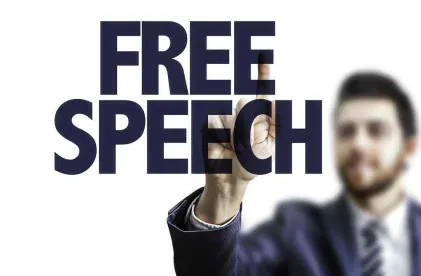The Supreme Court of the United States will hear argument in Mahanoy Area School District v. B.L. and whatever the result, the decision will fundamentally change how a public school can discipline students for speech that occurs outside the school.
Traditionally, public school officials were allowed to punish students for exercising their First Amendment rights on school grounds when the speech ‘would materially and substantially interfere with the requirements of appropriate discipline and in the operation of the school.’ This rule, first articulated in Tinker v. Des Moines Independent Community School District, has been Supreme Court precedent since 1969.
The facts of Mahanoy involve a high school freshman and junior varsity cheerleader, B.L., who went on to Snapchat to voice her frustration about not making the varsity cheerleading team. After posting a picture of her and friend, with middle fingers raised and a caption ‘‘F— school, f— softball, f— cheer, f— everything,’ she was suspended from the cheerleading team. Importantly, B.L. posted her Snap while she was off school property on the weekend.
B.L., through her parents, filed a Complaint and a Motion for Temporary Restraining Order (TRO) in the United States District Court for the Middle District of Pennsylvania alleging that the School District violated her First Amendment right to speak when she was punished for speech that originated outside of school, and that B.L. should be reinstated to the cheerleading squad. The court granted BL’s TRO based on the likelihood of B.L. prevailing on her First Amendment claim. The court also eventually granted summary judgment in favor of B.L., holding that BL’s snap was off-campus speech and not subject to regulation under Bethel School District No. 403 v. Fraser, 478 U.S. 675 (1986). The court also found that BL’s off-campus speech was not subject to discipline under Tinker. The School District subsequently appealed to the United States Court of Appeals for the Third Circuit.
The Third Circuit affirmed the District Court’s decision to grant B.L. summary judgment. In doing so, the Third Circuit reiterated that B.L.’s snap was off-campus speech. Citing Third Circuit precedent, the Third Circuit noted that a student’s online speech is not rendered ‘on campus’ because it mentions or involves the school. B.L.’s snap fell ‘utside the school context’ because it was created away from campus, over the weekend, did not use any school resources, and was shared on an unaffiliated platform (Snapchat). Even though the school, particularly the cheerleading program, was mentioned in the Snap, and the content reached students and officials, precedent within the Third Circuit holds that “those few points of contact are not enough” to render the speech “on-campus” and subject to the school’s purview to regulate.
In its petition for writ for certiorari to the Supreme Court, the School District argues that social media and new technology has aided a student’s speech to “ensur[e] that it reverberates throughout the classroom and commands the school’s attention.” The School District posits that schools have no authority to discipline students for off-campus speech thanks to the Third Circuit’s ruling.
On the other hand, in its brief, B.L. argues that the Third Circuit’s decision falls right in line with Tinker and its progeny:
In a weekend comment in an evanescent Snapchat message, B.L. swore in expressing her disappointment at not making the varsity team to her friends. The notion that a school can discipline a student for that kind of spontaneous, non-threatening, non-harassing expression is contrary to our First Amendment tradition, and finds no support in this Court’s student speech cases.
The parties have been asked by the Supreme Court to answer one, simple question: “Whether Tinker v. Des Moines Independent Community School District, 393 U.S. 503 (1969), which holds that public school officials may regulate speech that would materially and substantially disrupt the work and discipline of the school, applies to student speech that occurs off campus.”
Will the Court affirm the Third Circuit and provide even greater protection to a students’ First Amendment right to speak or will the Court give more power to the school to regulate a student’s speech when not on campus?



 />i
/>i
